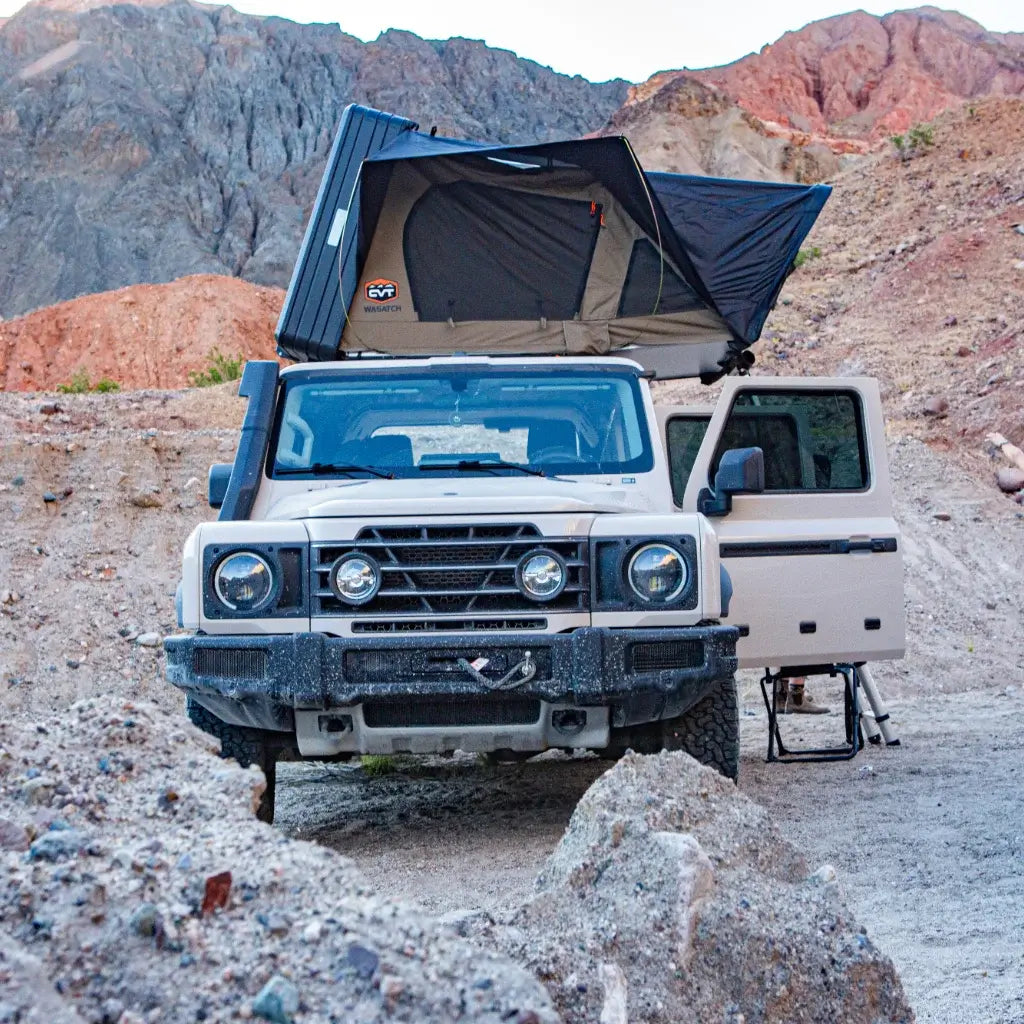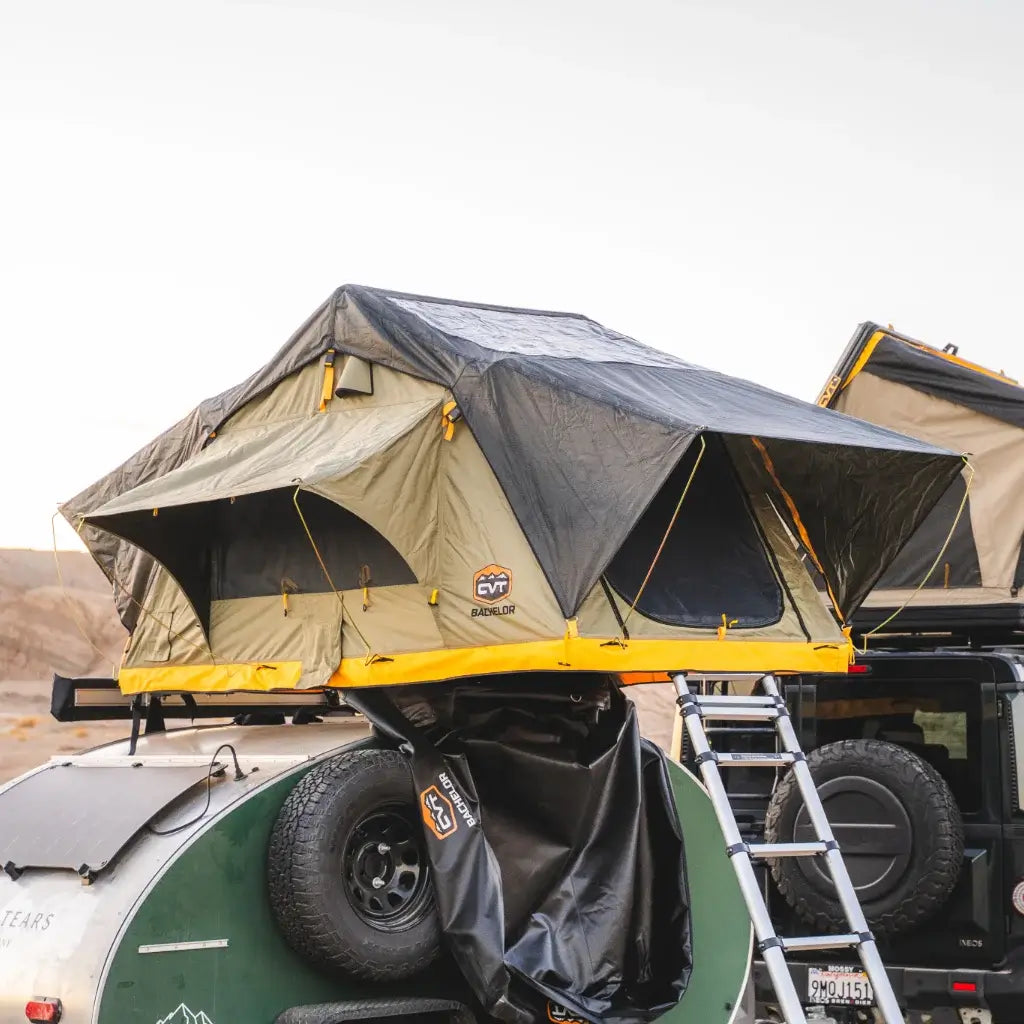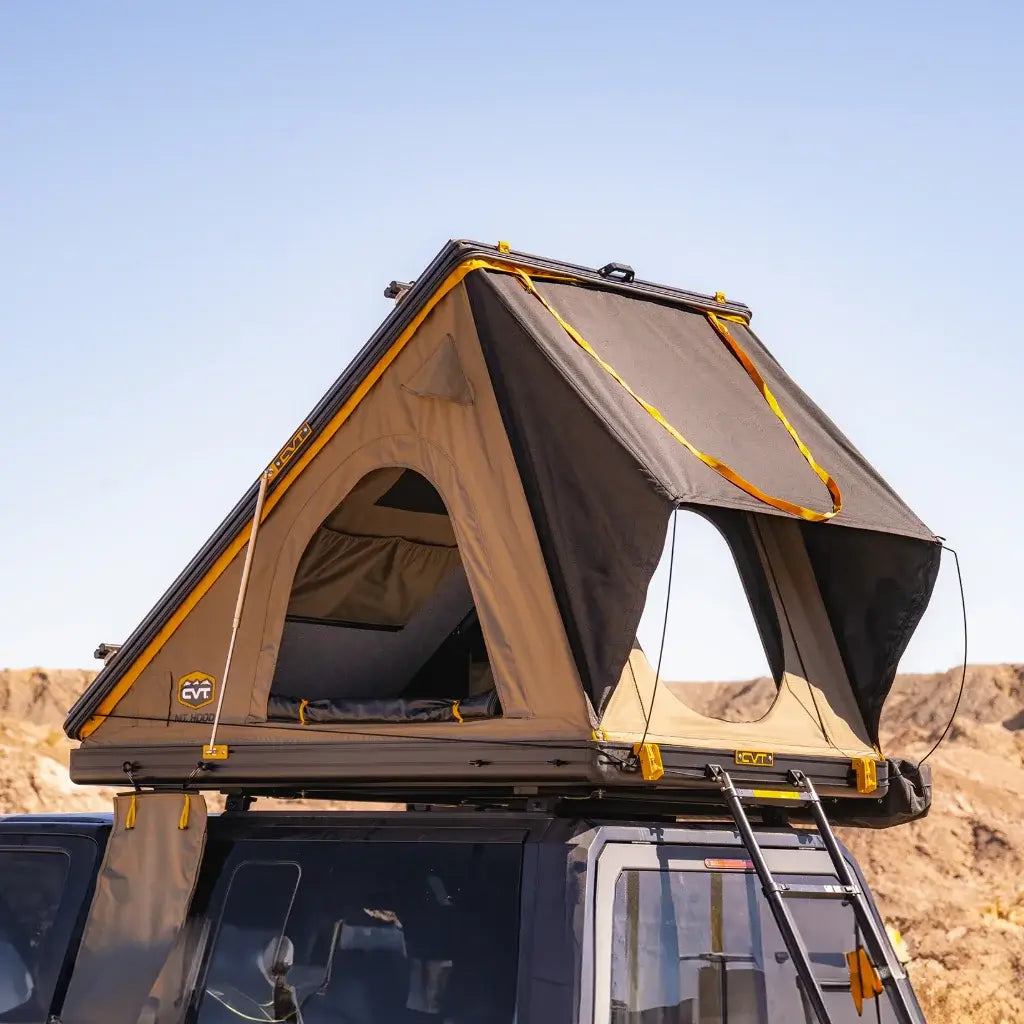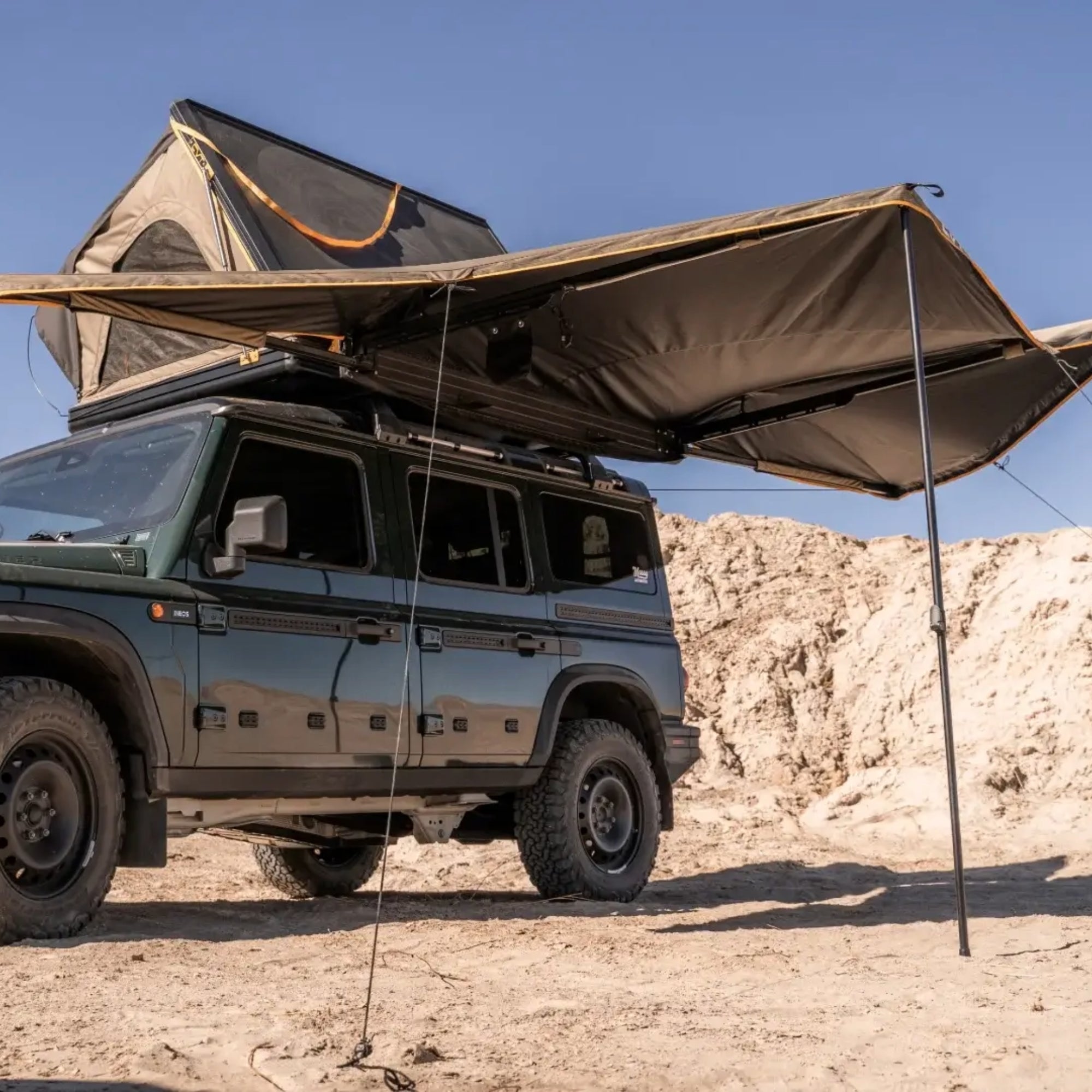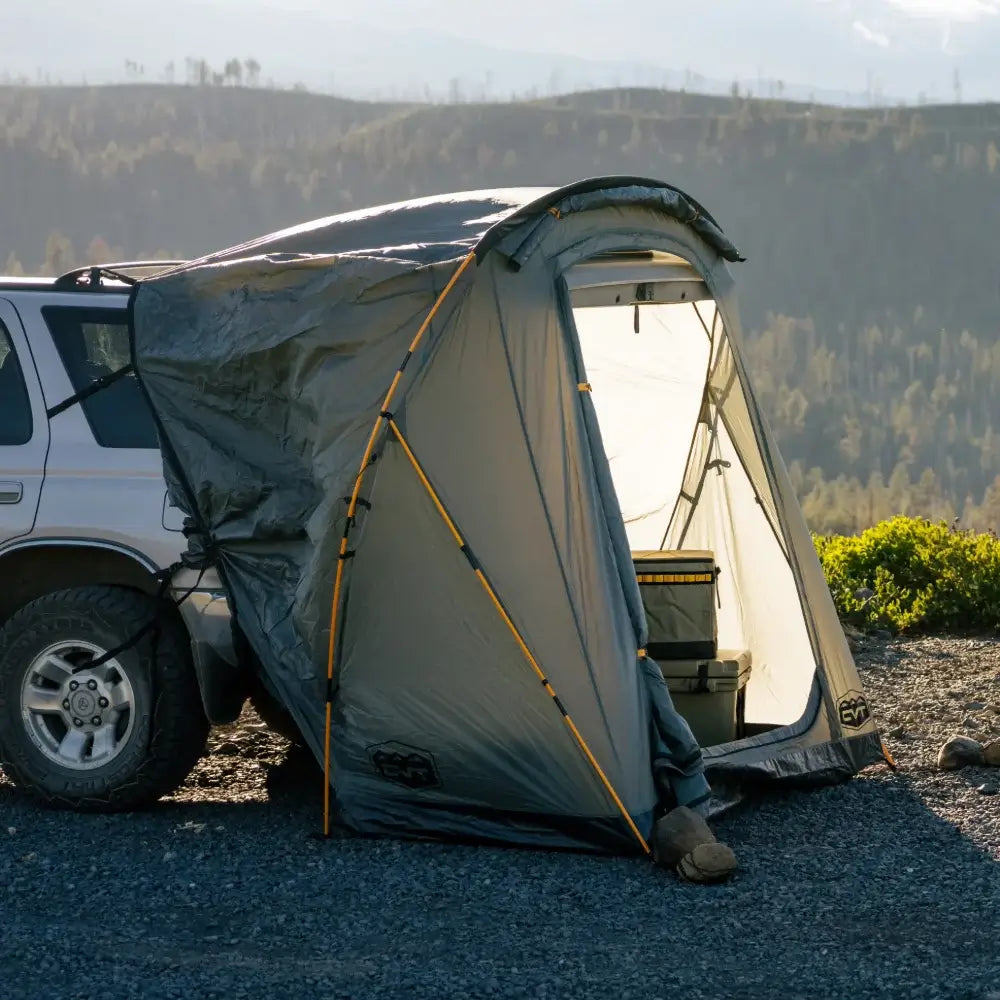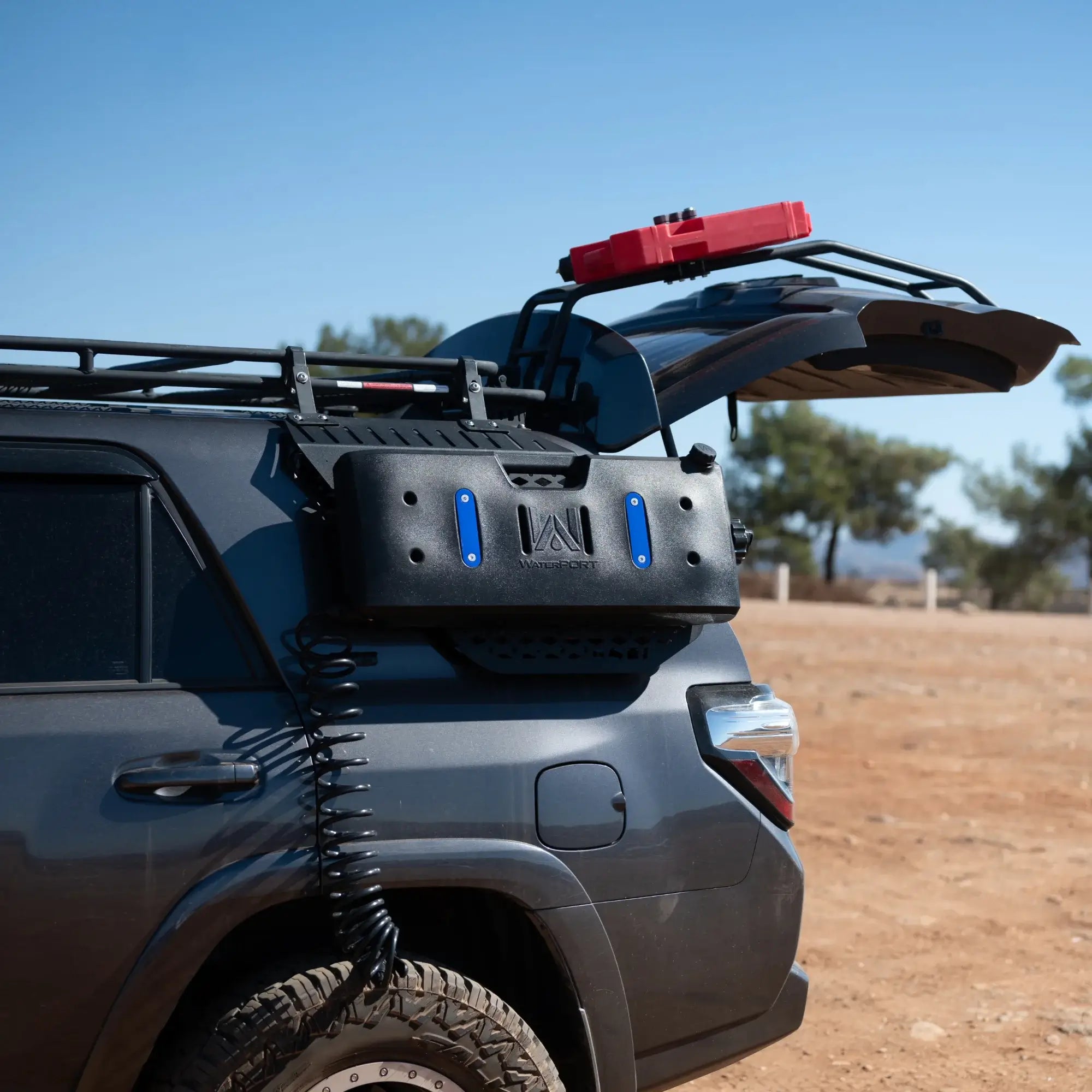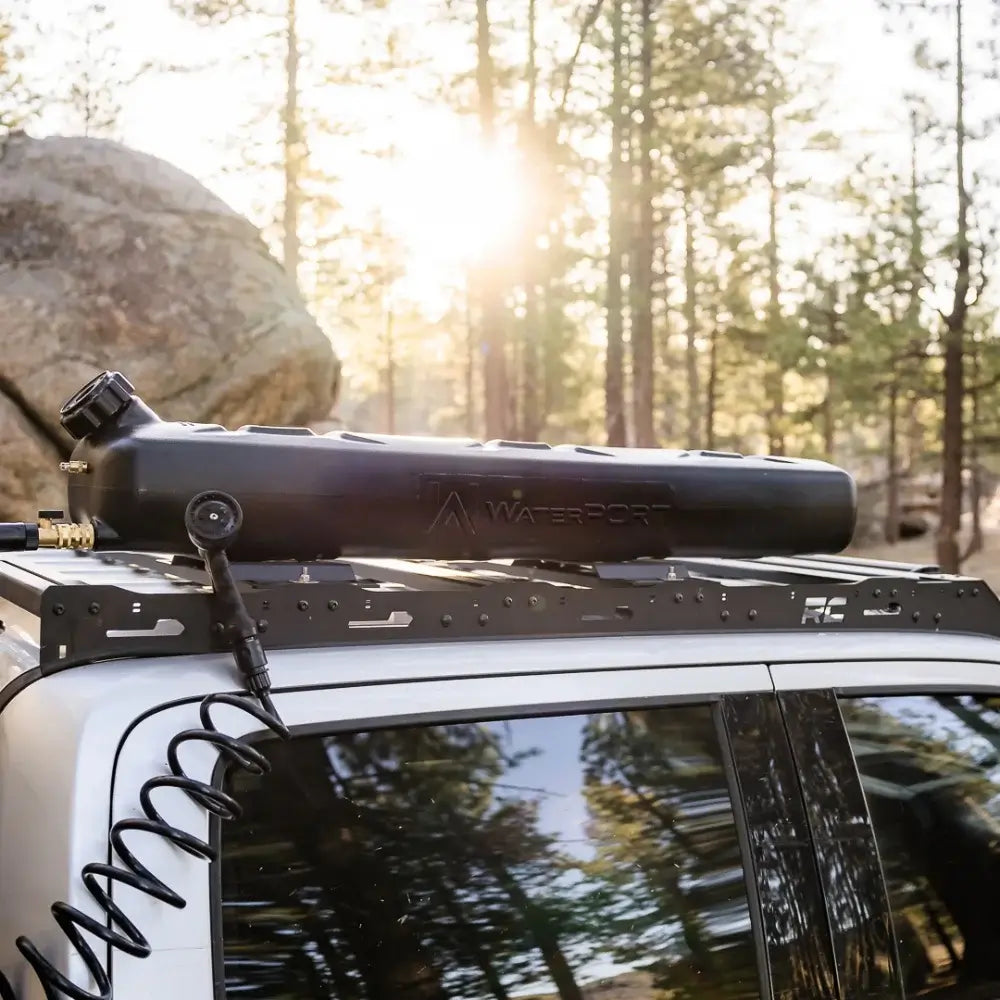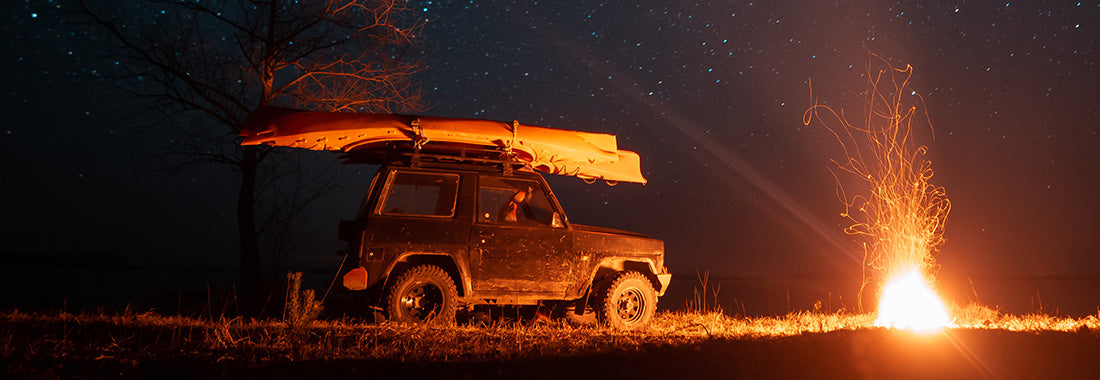
Embarking on a solo car camping journey usually comes with a mix of excitement and concerns about how it will go. Experienced campers agree that solo travel isn’t always safe, and it’s best to take as many precautions as possible when setting out on a trip alone.
Below, you’ll find a compilation of practical tips and valuable advice that have proven to be useful in ensuring the safety of solo car campers.
Top 7 Ways to Ensure Your Safety on a Solo Car Camping Trip
The incidents that may happen when a person is car camping alone can sound intimidating. While it’s definitely safer to travel in a group, it doesn’t mean you should refrain from exploring the world on your own. Here are some useful tips to ensure your safety throughout the journey.
1. Find a Safe Place to Stay Overnight

When you have a route in mind, it’s a good idea to research the local requirements for car camping.
If the state where you are traveling allows overnight parking at rest areas, it’s typically a safe option, as such spots often have video surveillance. Keep in mind that there’s usually a time limit for parking in rest areas.
In states like Colorado and Tennessee, where overnight parking is banned unless there’s an emergency, the best way to ensure a safe night’s rest is to look for nearby car camping sites.
If you’re on a tight budget, iOverlander and Free Campsites are great resources to find a free place to sleep at with reviews from other campers.
Also, there are stores that typically welcome overnighters, namely:
Such parking spots typically have video surveillance and sufficient lighting, making them a relatively safe option for your overnight stay.
2. Avoid Driving at Night
According to the National Highway Traffic Safety Administration, it’s 3 times more likely to have a fatal car accident at night than in the daytime. This is due to reasons such as lack of sleep and dimmed visibility.
Driving at night is risky not only for the camper alone but also for other people on the highway, as well as wild animals trying to cross the road.
Besides, if your vehicle happens to break down at night, it will be a lot more difficult to find help, and you’d be exposed to more risks.
If, for some reason, you can’t avoid hitting the road at night, make sure your windshield is clean so that you can avoid glare from approaching vehicles. You should also ensure that the headlamps are functioning well and keep cabin lights low to avoid disrupting your night vision.
3. Be Aware of Your Surroundings
It’s important to check your surroundings at all times. When in crowded places, avoid opening the trunk and try to always watch your back.
At night, it’s best to refrain from getting out of the vehicle, so set up your sleeping place and perform your nighttime routine at once. The perfect option is to do it even before you arrive at the chosen parking spot to prevent any onlookers from noticing you’re camping alone.
Besides, be ready to leave if you feel unsure about a rest area or campground where you were planning to stay.
4. Inform Your Social Circle
Even though you decided to travel alone, don’t make it a secret from your close friends and family. One of the fundamental car camping safety principles is to share your itinerary and location with someone you know and trust in case of an emergency.
A tracking app on your smartphone is typically enough to serve the purpose and provide you and your loved ones with peace of mind.
5. Know How to Defend Yourself

Getting ready for car camping solo should entail preparing oneself even for the worst-case scenarios. Thus, the knowledge of self-defense principles is critical.
Always have a bear spray at hand and know how to use it if you are car camping in bear country. Wild animals sometimes break into vehicles in search of food, so store your supplies in vacuum-sealed containers to avoid attracting unwanted visitors.
Also, be aware of the fact that it’s prohibited to use bear spray on smaller animals or humans. Approved alternatives for situations other than bear encounters are pepper spray and a taser.
6. Fill Up the Tank Regularly
As a rule of thumb, it’s good to keep the tank at least half full at all times, especially if it’s the first time you’re taking a certain route. After all, you might get lost, could want to take an unplanned detour, or simply get stuck in traffic. You can check for the nearest gas stations in an app called GasBuddy or on Google Maps.
7. Keep Your Electronic Devices Charged

While one of the main aims of going on a solo car camping trip is to disconnect from habitual activities, it’s important to stay connected. Having a smartphone with you is an absolute must for a variety of reasons, from emergency contacts to navigation. If you are going to remote areas, it’s highly recommended to have a separate GPS navigator with you.
Car outlets don’t always charge fast, so bring a power bank and some spare cables with you. However, one of the most reliable options is a portable solar charger.
Have a Safe Solo Car Camping Journey!

If, after weighing all pros and cons, you’ve decided to head out for solo car camping, ensure that you follow the safety precautions listed above. Some other useful tips are:
- Know how your car works and have an emergency kit with you
- Pack wisely and remember such essentials as a first-aid kit and enough food and water
- Have a paper map at hand in case the electronics fail
- Opt for a rooftop tent to stay protected from wildlife
- Ensure your vehicle has regular maintenance
And last but not least, be always ready to move quickly if you sense danger or are even the slightest bit unsure about the area or the people in it.

